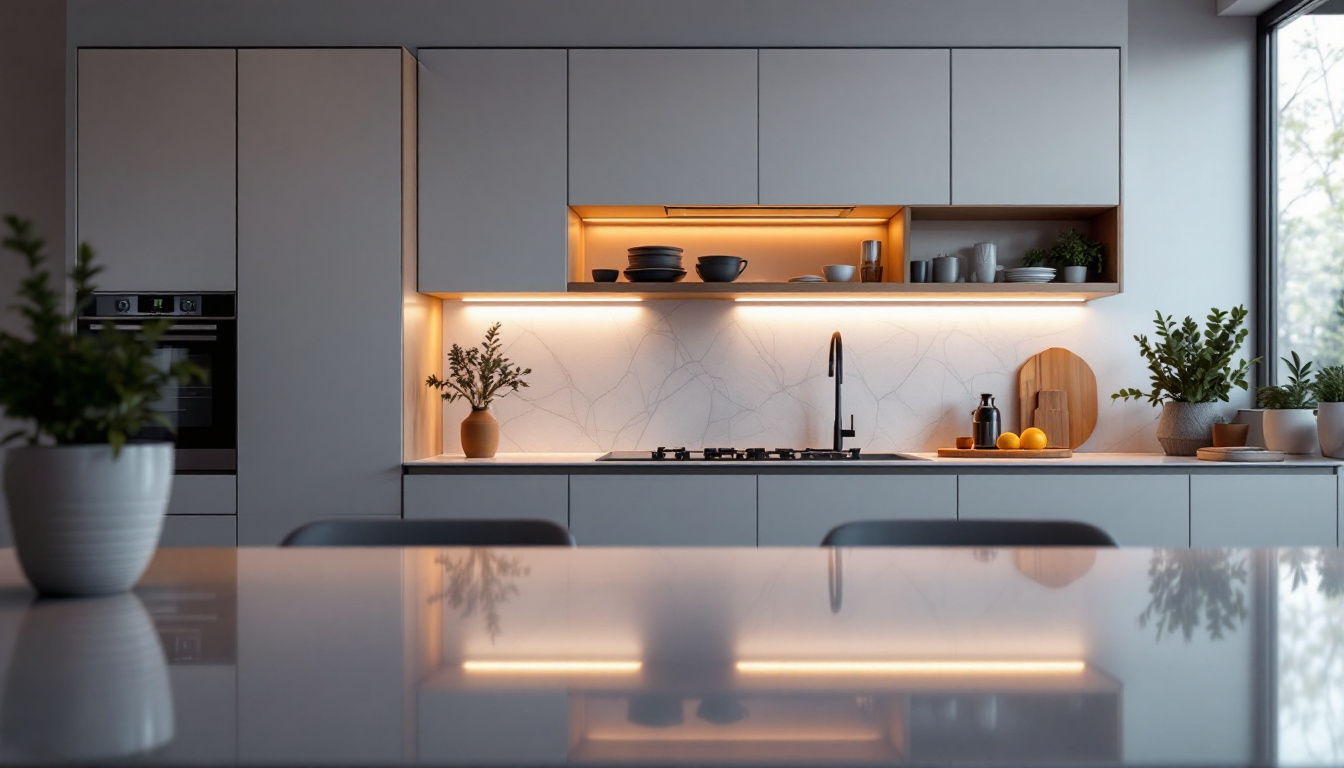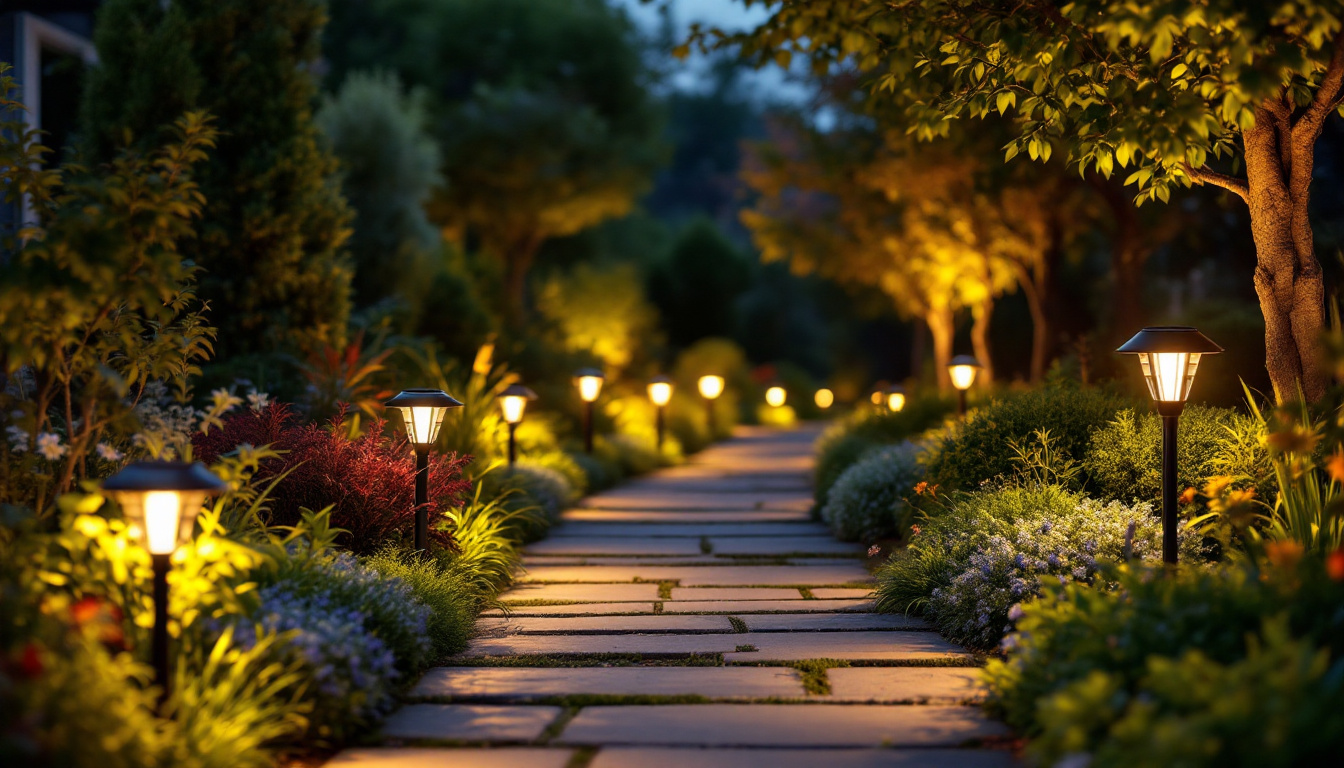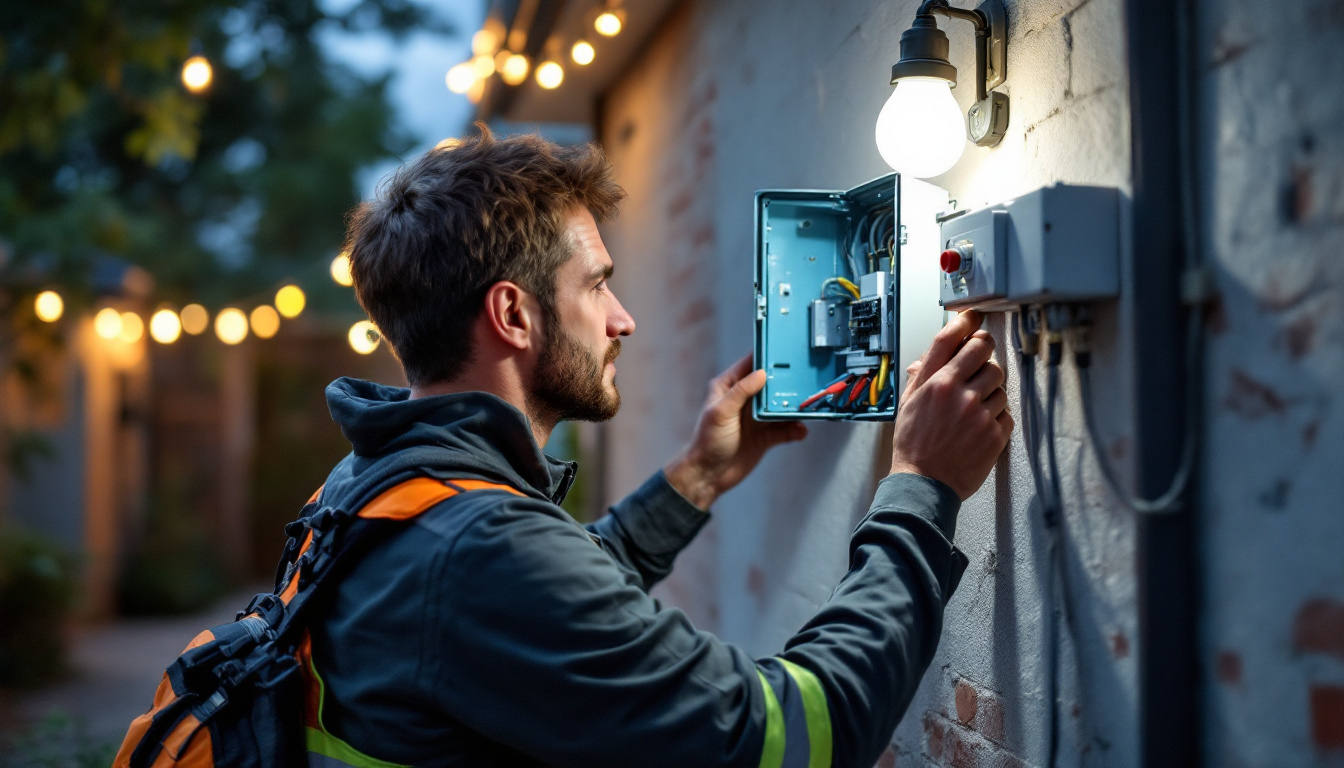
As the demand for sustainable and energy-efficient solutions continues to rise, outdoor solar lights have become a popular choice for homeowners looking to enhance their properties. Lighting contractors frequently encounter questions about these systems, ranging from installation specifics to performance expectations. This article aims to address some of the most common inquiries regarding outdoor solar lights, providing valuable insights for lighting professionals.
Outdoor solar lights operate by harnessing sunlight through photovoltaic cells, which convert solar energy into electricity. This electricity is then stored in batteries for use during the night. Typically, these lights come equipped with light-emitting diodes (LEDs) that provide bright illumination while consuming minimal power. The efficiency of modern solar lights has improved significantly over the years, with many models now capable of providing consistent lighting for up to 12 hours on a full charge, depending on the intensity of sunlight received during the day.
Most solar lights have built-in sensors that automatically turn the lights on at dusk and off at dawn. This feature not only enhances convenience but also maximizes energy efficiency, allowing homeowners to enjoy lighting without incurring additional electricity costs. Additionally, many advanced solar lights are now equipped with motion sensors that can detect movement, providing an extra layer of security by illuminating pathways or entryways only when someone is nearby. This not only conserves battery life but also deters potential intruders, making solar lights a practical choice for enhancing home safety.
There is a diverse range of outdoor solar lights available on the market, catering to various needs and preferences. Some popular types include:
In addition to these common types, there are also solar garden lights, which can add a whimsical touch to flower beds and garden borders. These lights often come in unique designs, such as butterflies or lanterns, and can serve as both functional lighting and decorative elements. Moreover, solar lights are increasingly being integrated with smart home technology, allowing for remote control and scheduling, which enhances their usability and adaptability to modern lifestyles. As the technology continues to evolve, the possibilities for solar lighting are expanding, making them an increasingly popular choice for eco-conscious consumers.
When installing outdoor solar lights, several factors must be considered to ensure optimal performance. First and foremost, the location of the lights is critical. They should be placed in areas that receive ample sunlight throughout the day to charge the batteries effectively.
Additionally, the angle of the solar panel can significantly impact the amount of sunlight absorbed. Positioning the panels to face south, if possible, can maximize exposure. It’s also essential to consider the surrounding environment; nearby trees or structures that cast shadows can hinder performance.
While solar lights are generally easy to install, following best practices can enhance their effectiveness. For instance, ensuring that the ground is level and free of debris will help secure the lights and prevent damage. If the lights are being mounted on walls or fences, using appropriate hardware is crucial to ensure stability.
Furthermore, contractors should take care to read the manufacturer’s instructions thoroughly. Each product may have unique installation requirements, and adhering to these guidelines can prevent issues later on.
The lifespan of outdoor solar lights can vary significantly based on several factors, including the quality of the materials used, the type of batteries, and the environmental conditions. Generally, high-quality solar lights can last anywhere from three to five years, with some premium models offering even longer lifespans.
Battery performance is a crucial aspect of longevity. Rechargeable batteries, typically nickel-cadmium or lithium-ion, can degrade over time. Regularly replacing these batteries as needed can help maintain optimal performance and extend the overall life of the lights.
Maintenance for solar lights is relatively minimal, but it is essential to ensure they continue to function effectively. Regular cleaning of the solar panels is necessary to remove dirt, dust, and debris that can obstruct sunlight absorption. A simple wipe with a damp cloth can suffice.
Additionally, checking the batteries periodically can help identify any issues before they become significant problems. If the lights are dimming or not turning on, it may be time to replace the batteries or assess other components.
One of the most significant advantages of outdoor solar lights is their cost-effectiveness. While the initial investment may be higher than traditional electric lights, the long-term savings on electricity bills and maintenance costs can be substantial. Solar lights operate independently of the electrical grid, making them an attractive option for homeowners looking to reduce energy expenses.
Moreover, many local governments and organizations offer incentives or rebates for installing energy-efficient lighting solutions, which can further offset initial costs. Contractors should be aware of these programs and inform clients about potential savings.
The ROI for solar lighting can vary based on several factors, including installation costs, energy savings, and potential increases in property value. Many homeowners find that solar lights not only enhance the aesthetic appeal of their properties but also improve safety and security, making them a worthwhile investment.
In addition, solar lights can increase curb appeal, which can be beneficial when selling a home. The combination of energy savings and potential property value increase often leads to a favorable ROI for homeowners.
Outdoor solar lights play a significant role in promoting sustainability by reducing reliance on fossil fuels and decreasing carbon footprints. By utilizing renewable energy from the sun, these lights help lower greenhouse gas emissions associated with traditional electric lighting.
Furthermore, many solar lights are designed with eco-friendly materials, contributing to a more sustainable product lifecycle. Contractors should consider promoting these environmental benefits to clients who prioritize sustainability in their purchasing decisions.
While solar lights are generally considered environmentally friendly, there are some concerns to be aware of. The production of solar panels and batteries can involve the use of toxic materials and energy-intensive processes. However, advancements in technology are continually improving the sustainability of these products.
Additionally, proper disposal and recycling of solar lights and their components at the end of their lifecycle are essential to minimize environmental impact. Contractors can play a crucial role in educating clients about responsible disposal practices.
Despite the growing popularity of solar lights, several misconceptions persist. One common myth is that solar lights are not bright enough for practical use. However, advancements in LED technology have significantly improved the brightness and efficiency of solar lights, making them suitable for various applications.
Another misconception is that solar lights require constant maintenance. While some maintenance is necessary, it is minimal compared to traditional lighting systems, which often require more frequent bulb replacements and electrical work.
Many contractors and homeowners worry about the performance of solar lights in adverse weather conditions. While it is true that solar lights may not perform optimally during extended periods of cloudy or rainy weather, most modern solar lights are designed to withstand various environmental conditions.
With proper installation and quality components, solar lights can still function effectively, even in less-than-ideal weather. However, it is essential to inform clients that performance may vary based on local climate conditions.
When choosing solar lights for clients, contractors should consider several factors to ensure they select the right products. First, assess the specific needs of the homeowner, including the desired brightness, style, and functionality of the lights. Understanding the intended use will help narrow down the options.
Additionally, evaluating the quality of materials and components is crucial. Look for lights with durable construction, high-quality solar panels, and reliable batteries. Reading customer reviews and seeking recommendations can also guide the selection process.
Education is key when it comes to helping clients make informed decisions about solar lighting. Contractors can provide resources, such as brochures or online materials, that outline the benefits and features of solar lights. Hosting informational sessions or workshops can also be an effective way to engage with clients and answer their questions.
Furthermore, showcasing successful installations and case studies can help illustrate the potential benefits and aesthetics of solar lighting. Providing visual examples can often be more persuasive than verbal explanations alone.
As outdoor solar lights continue to gain popularity among homeowners, lighting contractors play a vital role in guiding clients through the selection and installation process. By addressing common questions and concerns, contractors can help homeowners make informed decisions that enhance their properties while promoting sustainability.
From understanding the technology behind solar lights to navigating installation and maintenance, the insights provided in this article serve as a valuable resource for lighting professionals. By staying informed and proactive, contractors can ensure that they meet the growing demand for solar lighting solutions effectively.
Ready to elevate your lighting installations with the most efficient and sustainable outdoor solar lights? At LumenWholesale, we provide lighting contractors with the highest quality, spec-grade lighting products at prices that can’t be beaten. Say goodbye to local distributor markups and hello to our extensive selection that meets rigorous industry standards. Plus, with free shipping on bulk orders, you can stock up on superior lighting solutions without worrying about hidden fees. Don’t compromise on quality or value; choose LumenWholesale for all your lighting needs. Wholesale Lighting at the Best Value is just a click away.

Discover the ultimate guide to enhancing your kitchen with LED lights for cabinets.

Discover the best solar path lights in just five minutes with our comprehensive guide tailored for lighting contractors.

Discover the essential guide to small light bulb sizes tailored for lighting contractors.

Discover essential insights and expert tips for lighting contractors on selecting and installing electrical outdoor boxes.